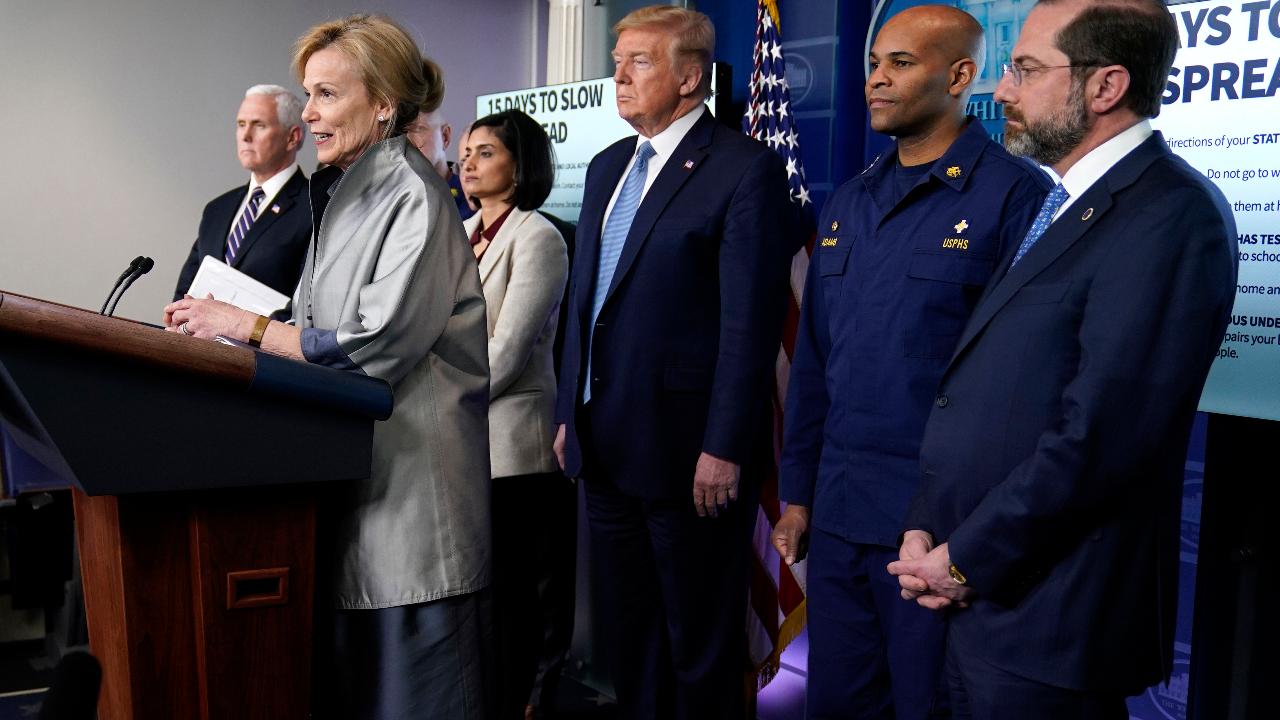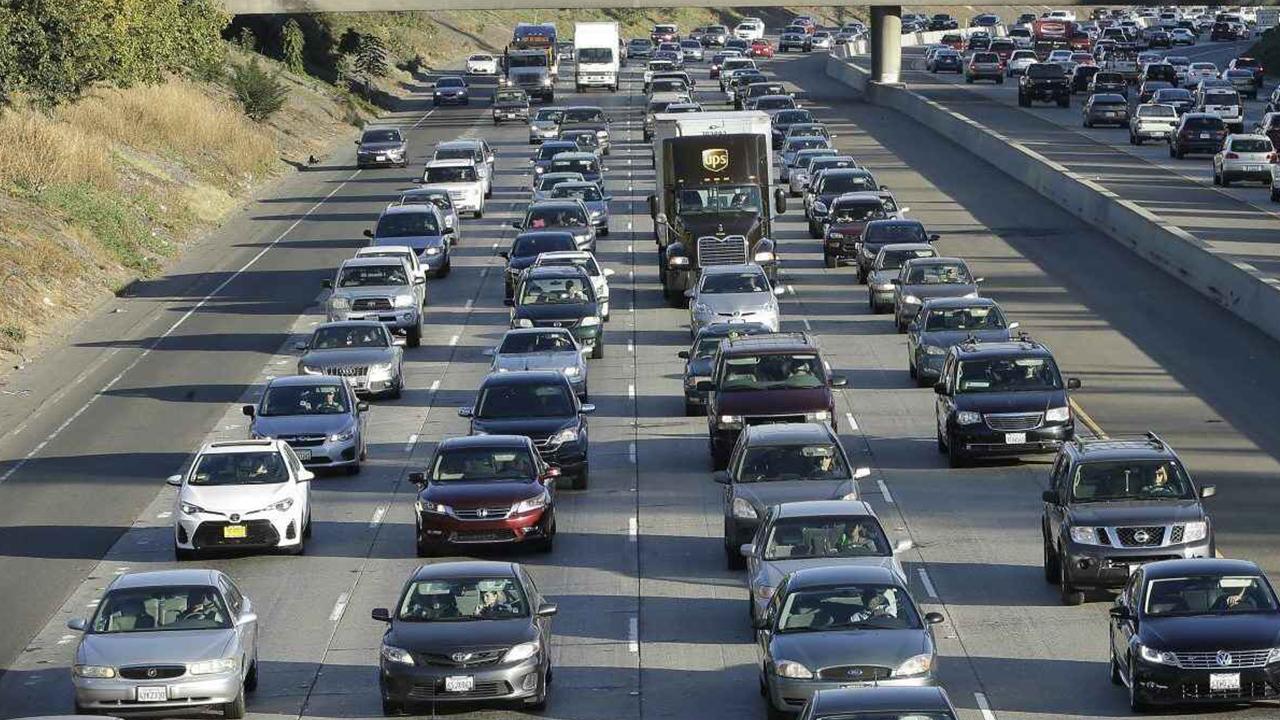Social distancing to prevent coronavirus is difficult in these professions
Keeping a safe distance from others is not possible in these jobs
Social distancing is easier said than done for some jobs that require human interaction.
Doctors, physician assistants, nurses and other hospital workers are on the frontlines of the crisis, encountering people who are often infected upon entering their care.
Retail workers at grocery stores, pharmacies, hardware stores and other shops that sell essential items will typically encounter a customer at the cash register or during the service process if there is no automated or self-checkout system.
WHAT DOES IT MEAN TO SHELTER IN PLACE?
The same goes for caretakers, whether providing aid to children or senior citizens, have no choice but to often work closely with their clients as part of the job, whether at home or in a facility.
The need to keep isolated by staying at home has continued to force businesses to close either by order or because of a lack of demand. On Friday, the Governor of New York – the state with the highest number of COVID-19 cases in the nation – ordered businesses statewide to close, unless they fell under the “essential” category.
“This is the most drastic action we can take,” Gov. Andrew Cuomo said during a Friday press conference.
At least 16,018 confirmed cases of new coronavirus were reported nationally as of Friday afternoon, according to Johns Hopkins University and Medicine’s Coronavirus Resource Center. As the number of infections continues to rise, more and more states are exploring options to place limitations on the workplace. And federal, state and local officials have instructed people to maintain a 6-foot social distance from others as COVID-19 spreads throughout the United States.
“Our officers will… continue to serve and protect their communities, period."
Cuomo said that starting Sunday, all workers in nonessential businesses must stay home and all gatherings of any size will be banned in the state of more than 19 million people. The move came after California all but confined its 40 million residents in the biggest lockdown in the nation.
GET FOX BUSINESS ON THE GO BY CLICKING HERE
“Essential services have to continue to function – grocery stores need food, pharmacies need drugs, the internet has to continue to work, the water has to turn on,” Cuomo continued.
SHELTER IN PLACE AMID CORONAVIRUS: WHO CAN STILL GO TO WORK?
But in some of these “essential businesses,” which include food services, healthcare and pharmacies, sanitation and public safety, keeping a safe distance from others is not possible.
Doctors, physician assistants, nurses and other hospital workers are on the frontlines of the crisis, encountering people who are often infected upon entering their care.
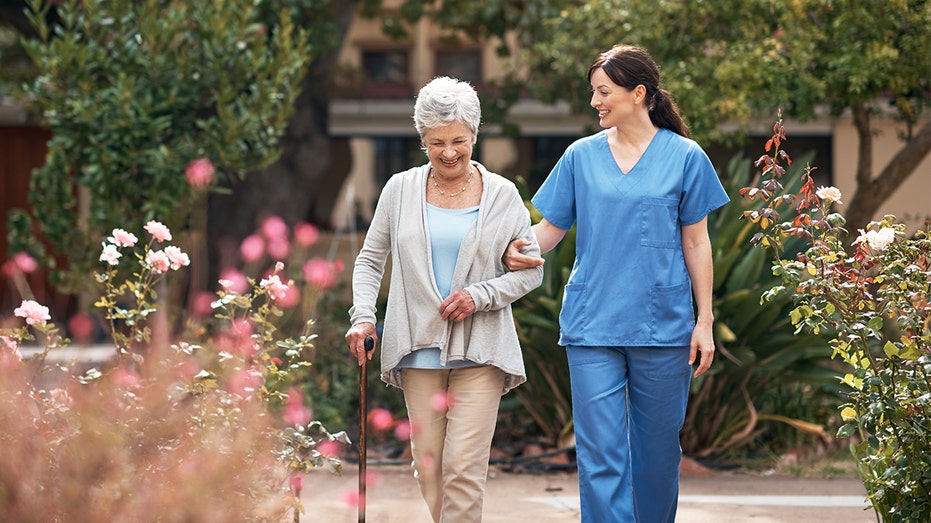
Although the travel ban limits the distance from which airlines can operate, flight attendants and other airline employees, largely those working aboard flights, are confined within limited space while in the presence of strangers.
Acting Homeland Security Secretary Chad Wolf told FOX Business’ Maria Bartiromo on Friday airline traffic is down nationwide, but the federal government does not have immediate plans to restrict domestic travel, he said.
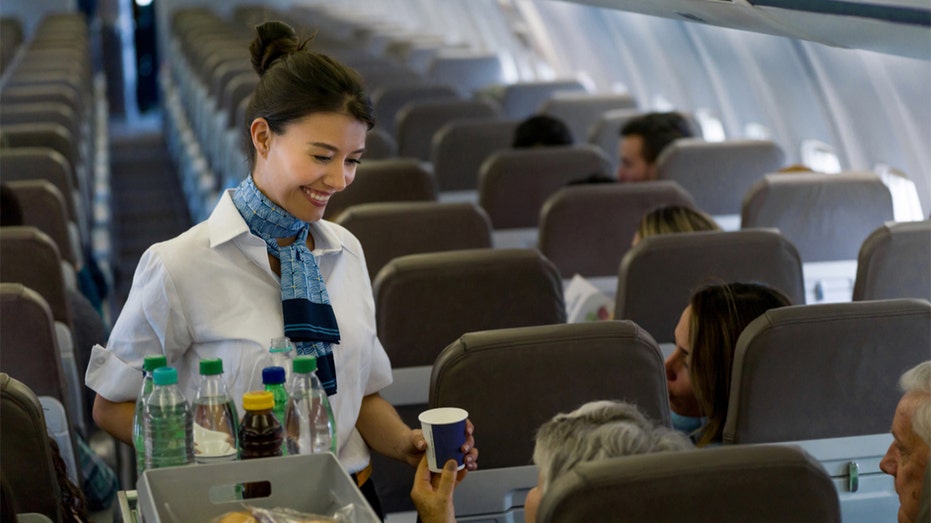
(iStock)
“We continue to look at that specifically regarding the hotspots around the country where we see large community outbreak and community transmission,” Wolf said. “The president, the vice president [are] very clear on this, encouraging individuals to stay home and really limiting that non-essential travel.”
CLICK HERE TO READ MORE ON FOX BUSINESS
The Association of Professional Flight Attendants released a video on Tuesday in which their national president, Lori Bassani, urging members to remain "nimble, flexible and alert as we work through these unprecedented times."
While police departments across the nation are beginning to tailor their responses to arrests and treatment of alleged criminals in an attempt to keep the individuals, and themselves, healthy, human interaction can only be avoided to a certain extent.
“We recognize that crime, unfortunately, is not going to go away during this pandemic, and that this virus represents an actual threat to health and safety, on top of the more common risks of law enforcement in America,” said Bill Johnson, executive director of the National Association of Police Organizations. “Our officers will nonetheless continue to serve and protect their communities, period.”
NAPO represents more than 241,000 law enforcement officers from more than a thousand police agencies.
The organization has been providing CDC-based guidance on best measures, the use of personal protective equipment and sources of funding from the departments of Homeland Security and Justice and FEMA to address the costs of responding to the virus.
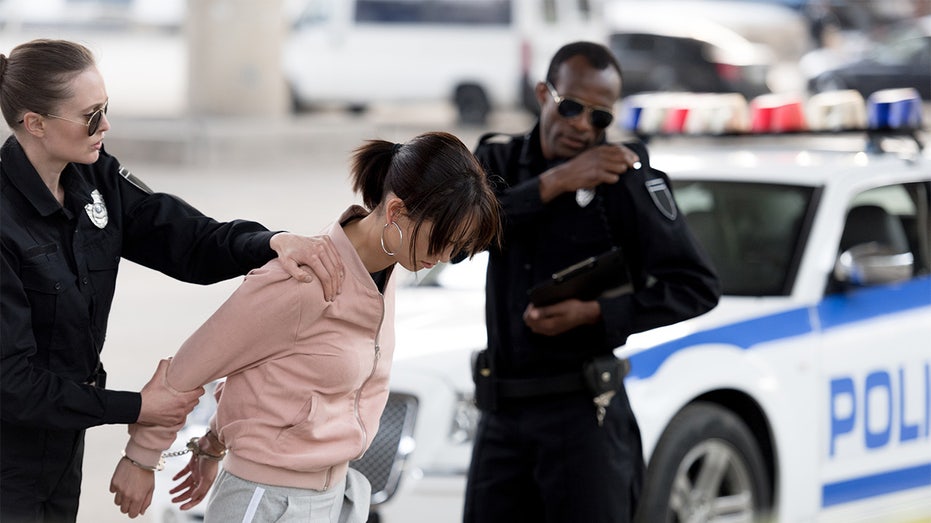
(iStock)
WHAT IS A FORCE MAJEURE CLAUSE?
Johnson said NAPO has also shared “guidance on how the employment laws, contracts and agreements under which many officers work may be addressed or adjusted because of the pandemic.
“Our bottom-line goal is that the men and women whom we represent, and their families, stay as safe and healthy as possible under the circumstances,” he added.
Correction officers, firefighters and paramedics face similar challenges on the job.
Harold Schaitberger, general president of the International Association of Fire Fighters, said in a statement to FOX Business they’re currently focused on keeping their firefighters and paramedics healthy – so they can keep others safe. One of the main topics of the IAFF’s concern is the need for additional personal protective equipment for members, according to its website.
DO'S AND DON'TS OF CORONAVIRUS SOCIAL DISTANCING
As the pandemic runs its course, the IAFF is asking 911 callers to follow CDC guidelines and to “inform dispatchers if anyone in their household is experiencing flu-like symptoms or is under quarantine.”
“It is also important for lawmakers and decision-makers to prioritize to ensure that fire fighters and paramedics have the protective gear they need as they respond to keep the community safe,” Schaitberger said.
The Associated Press contributed to this report.




















